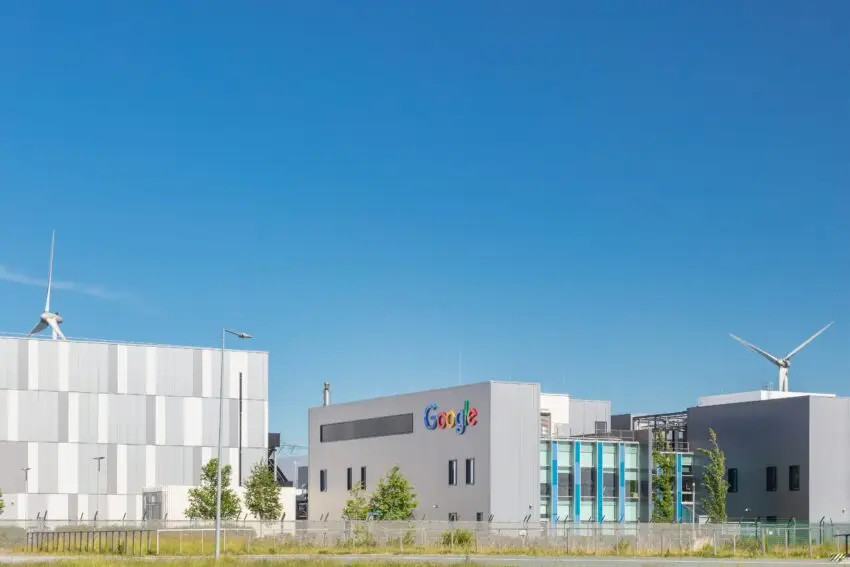Google has experienced a significant rise in greenhouse gas emissions over the past five years.
Driven by the growth and energy demands of AI-driven data centres, these emissions have surged by 48%, reaching 14.3 million metric tons.
Growing Emissions Due to AI Expansion
Google’s annual environmental report reveals a steep 48% rise in greenhouse gas emissions over the last five years. The surge is attributed to increased energy consumption in data centres and supply chain emissions.
These data centres, which are crucial for AI operations, are estimated to produce between 2.3% and 3.7% of the world’s CO2 emissions. This figure is higher than the global aviation industry, which accounts for 2.1% of CO2 emissions.
Impact on the Environment
The environmental footprint of the growing AI sector is becoming increasingly significant. According to Google’s report, “Reaching net-zero emissions by 2030 is an extremely ambitious goal and we know it won’t be easy.”
The report highlights that the future environmental impact of AI is “complex and difficult to predict.”
Despite these challenges, some tech leaders like Bill Gates believe that AI could ultimately benefit the environment. Gates has emphasised the commitment of big tech companies to invest in clean energy solutions.
AI Expansion Initiatives
In late 2023, Google unveiled Gemini, a notable competitor to OpenAI’s ChatGPT-4, marking a significant leap in their AI initiatives.
Additionally, AI features are being integrated into Google’s new Pixel phones, showcasing the company’s dedication to advancing AI technology.
John Kirk, Chief Sustainability Officer at ITG, stated, “The insatiable demand for AI adoption is already fuelling a wave of increased emissions, leaving big brands open to scrutiny regarding their sustainability credentials.”
Sustainability and Accountability
Kirk believes that organisations must reassess the environmental impact of their operations and collaborate with supply chain partners for transparency. Customers are increasingly demanding accountability and clear action plans to offset or reduce emissions.
Without these measures, trust in big brands could erode rapidly.
Big tech companies face mounting pressure to balance technological advancements with sustainability to maintain public trust and achieve long-term climate goals.
Challenges Ahead
Balancing the innovation of AI with its environmental costs is a monumental task. Google acknowledges the difficulty of predicting AI’s future environmental impact, making it challenging to set realistic sustainability goals.
Therefore, companies must stay vigilant and proactive in their efforts to minimise emissions and invest in clean energy.
As AI continues to grow, tech giants will need to find innovative solutions to reduce their carbon footprint.
Public Trust and Future Goals
Maintaining public trust is crucial for tech giants like Google. Their commitment to sustainability will be a significant factor in their long-term success.
Achieving net-zero emissions by 2030 is an ambitious target, but it is essential for environmental preservation.
Consumers and stakeholders alike will be closely watching how these companies address their environmental responsibilities.
The rise in Google’s emissions reflects the broader challenges faced by the tech industry in balancing innovation with sustainability.
As AI technology continues to evolve, the pressure on tech giants to reduce their environmental impact will only increase.
Achieving ambitious sustainability goals will be crucial for maintaining public trust and ensuring a greener future.


